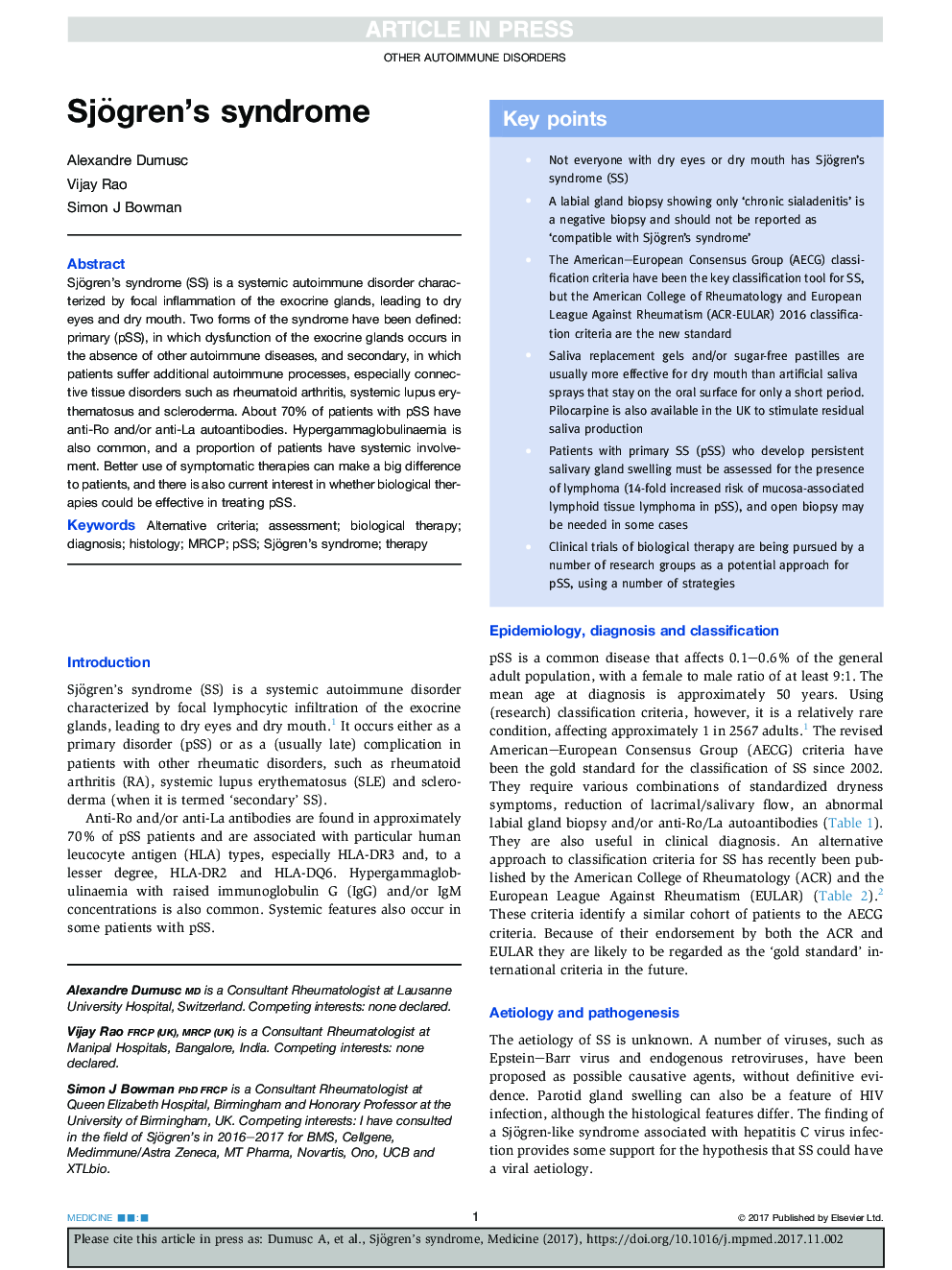| Article ID | Journal | Published Year | Pages | File Type |
|---|---|---|---|---|
| 8764088 | Medicine | 2018 | 5 Pages |
Abstract
Sjögren's syndrome (SS) is a systemic autoimmune disorder characterized by focal inflammation of the exocrine glands, leading to dry eyes and dry mouth. Two forms of the syndrome have been defined: primary (pSS), in which dysfunction of the exocrine glands occurs in the absence of other autoimmune diseases, and secondary, in which patients suffer additional autoimmune processes, especially connective tissue disorders such as rheumatoid arthritis, systemic lupus erythematosus and scleroderma. About 70% of patients with pSS have anti-Ro and/or anti-La autoantibodies. Hypergammaglobulinaemia is also common, and a proportion of patients have systemic involvement. Better use of symptomatic therapies can make a big difference to patients, and there is also current interest in whether biological therapies could be effective in treating pSS.
Related Topics
Health Sciences
Medicine and Dentistry
Medicine and Dentistry (General)
Authors
Alexandre Dumusc, Vijay Rao, Simon J. Bowman,
